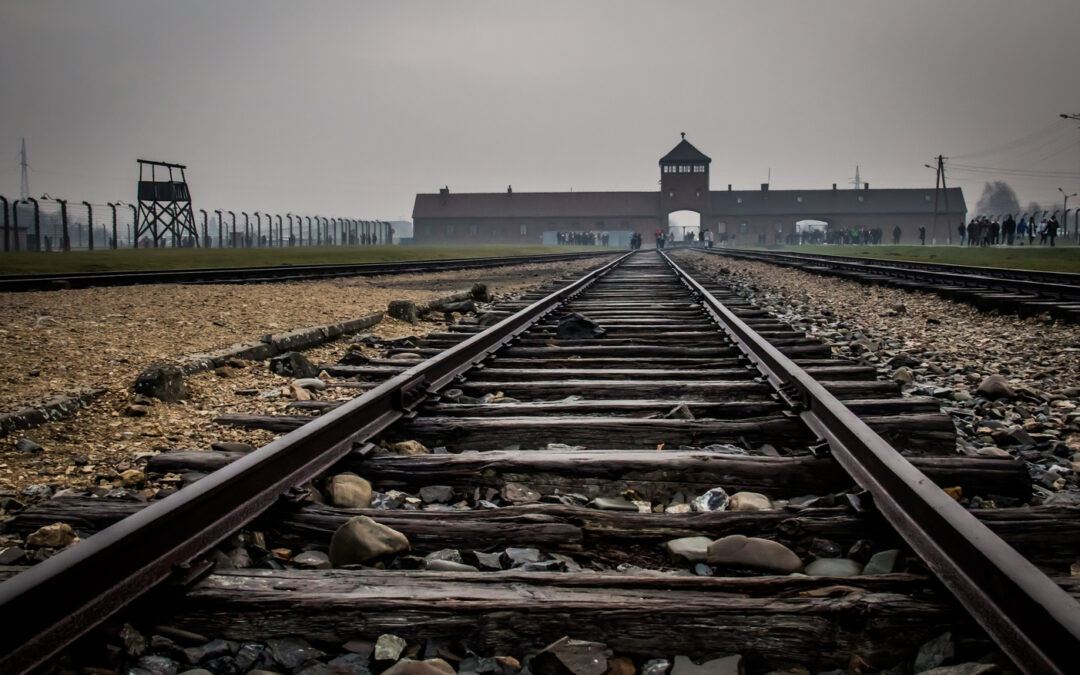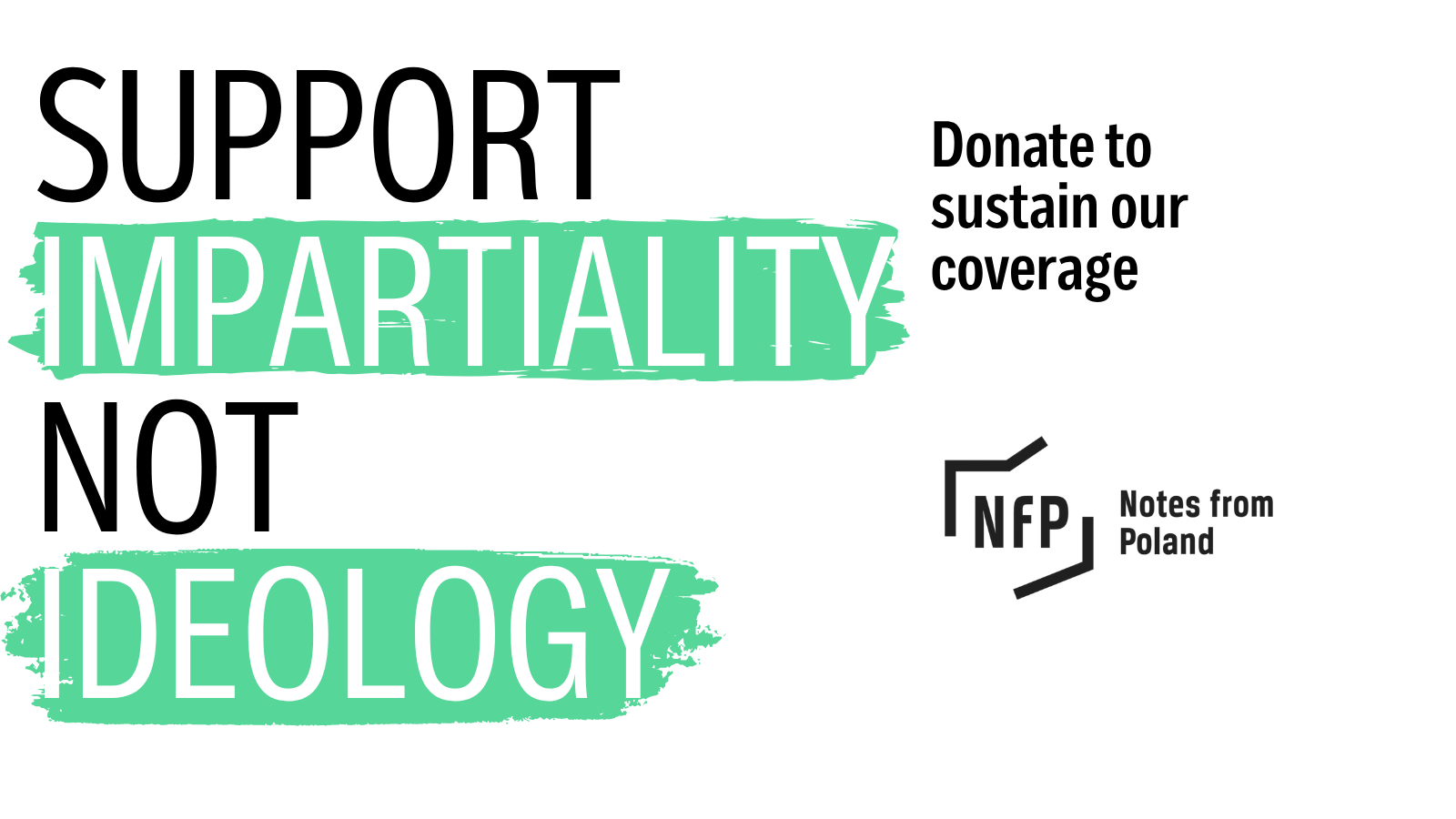Keep our news free from ads and paywalls by making a donation to support our work!

Notes from Poland is run by a small editorial team and is published by an independent, non-profit foundation that is funded through donations from our readers. We cannot do what we do without your support.
An auction of hundreds of items relating to the Holocaust and other Nazi-German crimes has been cancelled following international criticism and intervention by the Polish government. Poland says it will now seek to have the objects restituted if they are part of the country’s historical heritage.
It emerged this week that the Felzmann auction house in the German city of Neuss was scheduled on Monday to hold an auction of items linked to the Holocaust.
They included Stars of David worn by Jewish camp and ghetto prisoners, documents relating to forced sterilisations, records of companies forcibly sold to the Germans, and Nazi propaganda material, reported Deutsche Welle.
The artefacts, which come from a private collection, also include letters written by prisoners of Nazi-German camps. One letter from a prisoner at Auschwitz to a recipient in the city of Kraków – both of which were in occupied Poland – had a starting price of €500, reports news website Interia.
Ein Judenstern, Briefe von KZ-Häftlingen – das sind Dokumente, die normalerweise in Gedenkstätten zu sehen sind. Nun will ein Auktionshaus Holocaust-Zeugnisse zum Verkauf anbieten. Das Auschwitz-Komitee fordert, die Pläne zu stoppen. https://t.co/NnHKbqpCt5
— DER SPIEGEL (@derspiegel) November 15, 2025
A Gestapo file card relating to the execution of a Jewish prisoner in a Nazi-German ghetto was valued at €350, while a collection of postcards sent between the parents and children of a Jewish family in Poland was listed at €12,000.
Some items in the auction were also related to non-Jewish Polish victims, such as a telegram from a Polish officer killed by the Soviets in the Katyn massacres and a document referring to the detention of two Poles sent to the Nazi-German Treblinka labour camp.
Around 20 items in the auction related to prisoners at Majdanek, another Nazi-German camp in occupied Poland. A spokeswoman for the Majdanek museum, Agnieszka Kowalczyk-Nowak, told the Polish Press Agency (PAP) that the sale of such objects is “outrageous”.
“We don’t know who these memorabilia will ultimately end up with, whether researchers or historians will ever have access to them, whether the buyers will be able to provide them with appropriate storage conditions, and whether there will be neo-Nazis among them,” she added.
The planned auction was also condemned by the International Auschwitz Committee, which was formed by survivors of the camp. They urged for it to be cancelled, saying that such items should be displayed at museums and memorials, not “exploited for commercial gain.
Revital Yakin Krakovsky, head of Holocaust remembrance organisation March of the Living Israel, likewise called it “deeply troubling that evidence of Nazi crimes is being sold to the highest bidder”, reports news website Ynet.
Poland’s state Institute for National Remembrance (IPN) called it a “morally reprehensible commercialisation of the tragedy of the Holocaust”.
📢 Sprzeciw wobec handlu świadectwami zbrodni niemieckich z czasów II wojny światowej
❗ Jako #IPN wyrażamy stanowczy sprzeciw wobec wystawiania na aukcjach dokumentów i przedmiotów związanych z ofiarami zbrodniarzy niemieckich III Rzeszy. Tego rodzaju praktyki budzą powszechne… pic.twitter.com/Bq64UJbRAh
— Instytut Pamięci Narodowej (@ipngovpl) November 16, 2025
Early on Sunday afternoon, Poland’s foreign minister, Radosław Sikorski, announced that he had spoken with his German counterpart, Johann Wadephul, about stopping the auction.
“We agreed that such a scandal must be prevented,” wrote Sikorski. “The memory of Holocaust victims is not a commodity and cannot be the subject of commercial trade. Poland appeals for the return of artefacts to the Auschwitz Museum.”
Meanwhile, Polish culture minister Marta Cienkowska, whose department is responsible for recovering Poland’s enormous wartime losses, said that “we will unequivocally demand the return of these objects to Poland”.
Po wstrzymaniu aukcji przechodzimy do kolejnego etapu. Natychmiast rozpoczynamy działania w celu pełnego wyjaśnienia proweniencji tych obiektów. To kluczowe, by ustalić, skąd pochodzą, w jaki sposób trafiły do obrotu i czy nie zostały wyniesione z miejsc, w których powinny… https://t.co/DHSVJo2O8q
— Marta Cienkowska (@MartaCienkowska) November 16, 2025
Soon afterwards, Sikorski announced that the items in question had been removed from the website of the auction house. The auction’s cancellation was confirmed by Germany’s ambassador to Poland, Miguel Berger, who said that it “should never have taken place”.
Cienkowska added that, now that the auction had been suspended, her ministry would “move to the next stage” of establishing whether any of the items should be restituted.
“We are immediately initiating actions to fully clarify the provenance of these objects,” wrote Cienkowska. “We demand access to all materials concerning the origin of these items, and we will strive for them to be secured and returned to Poland as swiftly as possible, if it turns out that such a return is justified.”
Z zadowoleniem przyjmuję odwołanie tej aukcji. Nigdy nie powinna była się ona odbyć. Nie wolno handlować dokumentami i przedmiotami osobistymi ofiar nazizmu. https://t.co/oRl8dpqai9
— Miguel Berger (@Amb_Berger) November 16, 2025
Before World War Two, Poland had Europe’s largest Jewish population, and the second-biggest in the world, behind only the United States. However, 80-90% of the country’s roughly 3.3 million Jews were killed in the Holocaust.
Most of Nazi Germany’s Holocaust machinery, including its largest Jewish ghettos and the death camps, were located in occupied Polish territory.
A similar number of non-Jewish citizens of Poland were also killed in the war. In total, around 17% of Poland’s pre-war population died, the highest proportional loss of any country.
Poland also saw hundreds of thousands of cultural, historical and intellectual objects destroyed or plundered during the German occupation, many of which remain unaccounted for.
The last survivor fighter from the Warsaw Ghetto Uprising, the largest single act of Jewish resistance in WWII, has died.
Michael Smuss passed away aged 99 on Thursday. He had continued to educate about his wartime experiences right to the end of his life https://t.co/A8J3xl840P
— Notes from Poland 🇵🇱 (@notesfrompoland) October 24, 2025

Notes from Poland is run by a small editorial team and published by an independent, non-profit foundation that is funded through donations from our readers. We cannot do what we do without your support.
Main image credit: Dieglop/Wikimedia Commons (under CC BY-SA 4.0)

Daniel Tilles is editor-in-chief of Notes from Poland. He has written on Polish affairs for a wide range of publications, including Foreign Policy, POLITICO Europe, EUobserver and Dziennik Gazeta Prawna.




















